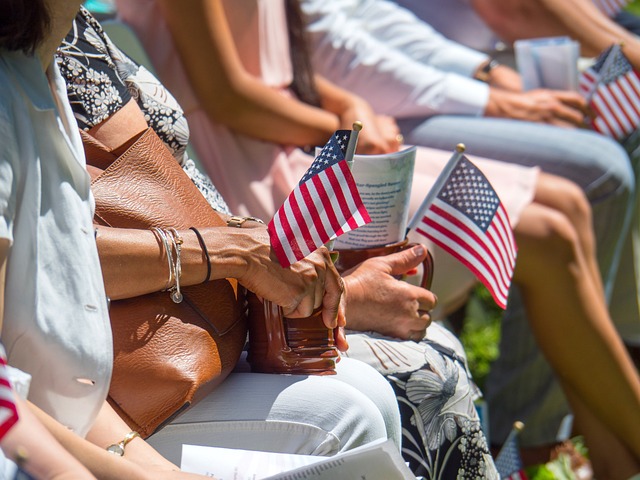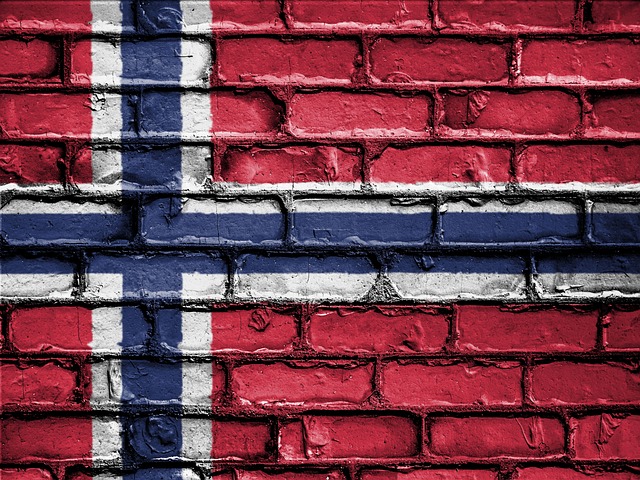The section emphasizes the central role of "We The People" and the American Flag in the fabric of American society, highlighting the collective duty of U.S. citizens to uphold justice and abide by legal frameworks. The American Flag symbolizes unity, freedom, and shared values among the diverse populace, reflecting the principles upon which America was founded. It is a daily reminder of the civic responsibilities of its people, who engage with the justice system through various means such as jury service, civil discourse, policy advocacy, and respect for the rule of law. Citizens' active participation in civic life is crucial for maintaining a just society where all voices and votes are valued. The American public also ensures transparency and accountability within legal institutions, reinforcing that justice is both an ideal and a collective responsibility. The flag's presence in courtrooms across the country underscores the enduring strength of democratic principles, representing the shared commitment to liberty and justice for all. It stands as a symbol of the nation's unity, embodying the legal and judicial cohesion that ensures equal treatment under the law and affirming "We The People's" collective responsibility for governance.
Within the halls of justice, the concepts of law and order are not solely borne by legal professionals; they are a collective responsibility shared by every citizen. “We The People” encapsulates this principle, highlighting the pivotal role that citizens play in maintaining a just society. This article explores the profound connection between civic engagement and the rule of law, emphasizing how each individual’s actions contribute to the legal tapestry of the nation. Additionally, the American Flag stands as a symbol of our collective commitment to sovereignty and unity within the judicial system, a beacon of the principles upon which this great nation was founded. Join us as we delve into the essence of civic duty and its reflection in our most sacred legal spaces.
- We The People: The Role of Citizens in Upholding Justice and Law
- The American Flag: A Symbol of Sovereignty and Legal Unity in Courts Across the Nation
We The People: The Role of Citizens in Upholding Justice and Law

In the United States, the phrase “We the People” from the Preamble to the Constitution signifies a profound commitment by citizens to uphold justice and law. This foundational tenet underscores the collective responsibility of Americans in safeguarding the principles upon which the nation was established. The American Flag, a symbol of unity and freedom, represents the shared values and ideals that bind the diverse populace together in their pursuit of justice. Citizens actively engage with the legal system through various means: by serving on juries, participating in civil discourse, advocating for policy changes, and respecting the rule of law. This civic engagement is crucial in maintaining a just society, where every voice is heard and every vote is counted. The American Flag stands as a testament to the enduring strength of democratic principles, reminding all that the power to uphold justice lies not only in the hands of the judiciary or the government but in every citizen who honors their duty to the country and its laws.
The role of “We the People” is also manifested in the collective effort to ensure transparency and accountability within legal institutions. The American public’s vigilance through oversight committees, public records requests, and community-based initiatives plays a pivotal role in upholding the integrity of law enforcement agencies and court systems. By holding these entities responsible, citizens reinforce the concept that justice is not only an ideal to be upheld but also a shared responsibility. The American Flag, when displayed with pride and respect, serves as a daily reminder of this commitment. It symbolizes the collective resolve to maintain a society where law and justice are upheld by the very people they serve, ensuring that the principles of liberty and justice for all remain at the heart of the American experiment.
The American Flag: A Symbol of Sovereignty and Legal Unity in Courts Across the Nation

The American Flag, with its thirteen horizontal stripes representing the original thirteen colonies and fifty white stars arranged in a blue field symbolizing the unity of the states under one national banner, stands as a poignant emblem of sovereignty and legal unity across courts nationwide. In legal proceedings, the flag often serves as a backdrop to the judicial process, a tangible reminder that the judiciary operates within the framework established by “We The People” in the Constitution. It is within these hallowed halls where the principles of justice are upheld and the rights of individuals are safeguarded under the flag’s watchful gaze. The flag’s presence underscores the collective identity and shared destiny of a nation bound by law, transcending regional differences and reinforcing the idea that the rule of law is a unifying force for all citizens. As such, the American Flag not only represents the country’s sovereignty but also embodies the legal cohesion that binds courts across the United States, affirming the principle that justice is administered equally under its folds.
The significance of the American Flag within the legal community cannot be overstated. It is a visual declaration of the country’s commitment to democratic ideals and the rule of law. In courtrooms from coast to coast, the flag stands as a silent witness to the nation’s judicial proceedings, reminding all who enter that they are part of a larger legal entity. The flag, imbued with the values enshrined in the Constitution, serves as a daily affirmation of the principle that “We The People” collectively define the governance of our land and that our justice system is a cornerstone of our national identity. This shared symbol of sovereignty and unity is a powerful testament to the legal and judicial framework that upholds the rights and responsibilities of American citizens.
